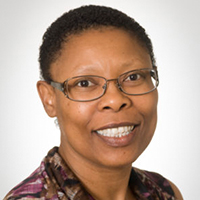You are here
Digitalization, Automation, and Older Black Women: Ensuring Equity in the Future of Work
Working Paper*, Mar 15, 2019
Older Black women have always worked outside the home despite limited occupational opportunities. In 1940 more than three-fourths of Black women worked as either private household workers or farm laborers. Since then, Black women have increased their educational attainment and moved in large numbers into clerical and professional occupations. Despite these advances, Black women aged 40 and older remain concentrated in a small number of occupations — almost half of older Black women work in just 20 occupations out of more than 400. Many of the occupations that older Black women work in are disproportionately low wage occupations. Automation and other technologies threaten many of the jobs older Black women work in including low wage jobs, middle-skill jobs that pay well but do not require a bachelor’s degree and professional jobs that require a bachelor’s degree or more. The risks of automation threatens to increase economic inequality — either through the growth of low-wage occupations where older Black women are disproportionately employed, or by increasing the risk of automation or digital skills substituting for workers in middle-skilled and professional occupations. Older Black workers are trying to keep up with the digital skills, technological, and educational requirements necessary for the future of work but these efforts are resulting in increased student loan debt — especially for older Black women — but not necessarily better jobs or earnings.

Chandra Childers
Chandra Childers is a Senior Research Scientist at the Institute for Women’s Policy Research. An expert on social and economic inequality by race and sex, Chandra examines issues related to women and girls of color and job quality. At IWPR she has focused on the Status of Black Women, the Status of Women in the South, and Access to Good Jobs for Women in Mississippi. In addition to being cited in The Nation, The Atlantic, and Refinery29, Chandra has given interviews on NPR’s 1A, WOSU Public Radio, and Top of Mind with Julie Rose as well giving presentations on IWPR’s research at policy conferences including the Center for Budget and Policy Priorities, the Georgia Budget and Policy Institute, and the Women in Government Conferences.
*This working paper was made possible by the US 2050 project, supported by the Peter G. Peterson Foundation and the Ford Foundation. The statements made and views expressed are solely the responsibility of the authors.
